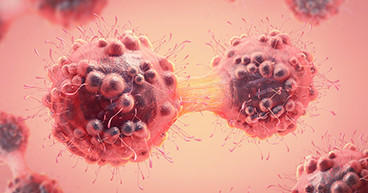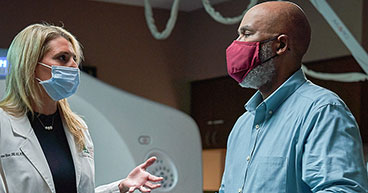


113 Posts

July 11, 2024
Gen X facing higher cancer rates than Baby BoomersResearch suggests that when Gen Xers start turning 60 in 2025, they’re more likely to be diagnosed with invasive cancer than Baby Boomers were at age 60.

June 18, 2024
Colorectal cancer cases are surging in teenagersA sharp rise in colorectal cancer in teens has researchers scrambling to stem the tide of new cases and determine the cause.

May 14, 2024
Can aspirin work its wonders to prevent cancer?Evidence is mounting that an aspirin regimen may help reduce the risk of certain cancers, especially colorectal cancer.

February 1, 2024
5 bold predictions about the future of cancer careCancer researchers are optimistic that in 2024 more people will benefit from cancer breakthroughs, including research that unlocks the biology behind cancer disparities, wider access to CAR T-cell therapy and better access to clinical trials.

October 31, 2023
Busting myths: Cancer is not just one diseaseResearch has shown is that cancer is not just one disease but many, each with its own characteristics, risk factors, causes and treatments.

June 20, 2023
Cancer risk and care disparities are often higher in the LGBTQIA+ communityMembers of the LGBTQIA+ community often face higher cancer risks and hurdles to diagnosis, treatment and health care access.

April 25, 2023
What’s the difference? Cancer remission, cure and no evidence of diseaseAs you go through your treatment journey, the information you take in may be overwhelming—and potentially confusing.

April 6, 2023
Research breakthroughs leading to new treatments for blood cancersRemarkable progress in blood cancer treatments has significantly increased survivability rates for these hard-to-treat cancers.

March 6, 2023
What’s driving higher colorectal cancer rates in young adults?While overall cases and deaths have declined, especially among older adults, colorectal cancer diagnoses have increased dramatically among young adults.
Guidelines
The information contained in this blog is not intended nor implied to be a substitute for professional medical advice. Always seek the advice of your physician or other qualified health provider prior to starting any new treatment or with any questions you may have regarding a medical condition. Nothing contained in the blog is intended to be used for medical diagnosis or treatment of any illness, condition or disease.